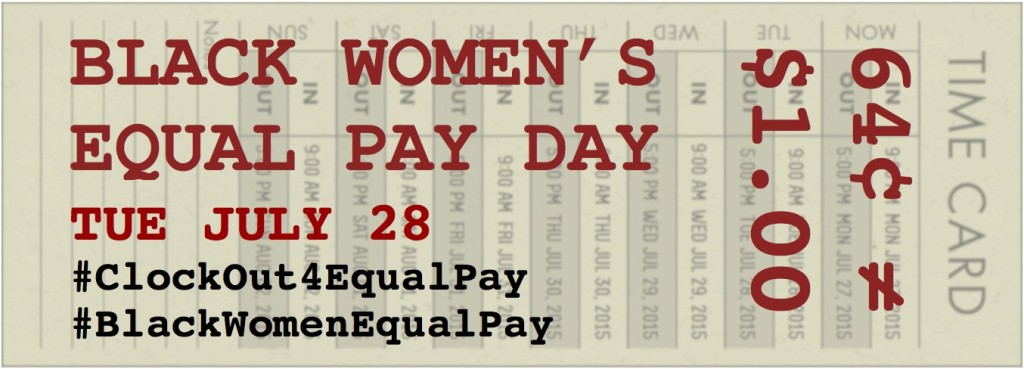
I’ve taken my selfie and I’ve tweeted.
What else can I do?
1. Read about bills that Congress is considering, and get to know your Congresspeople!
Find your Congresspeople here, and click on their profiles to check out their voting records and get their contact information.
Paycheck Fairness Act:
- Would continue the fight against discrimination in the workplace, including expanding Equal Pay Act remedies beyond liquidated damages and back pay, closing employer defense loopholes, and making employer pay practices more transparent to their employees.
- House of Representatives: H.B. 1619
- Senate: S.B. 862
See the National Women’s Law Center’s helpful fact sheet about the Paycheck Fairness Act.
Raise the Wage Act:
- Would increase the federal minimum wage by $1/hour every year to $12/hour by 2020, then to increase every year as determined by the Secretary of Labor.
- House of Representatives: H.B. 2150
- Senate: S.B. 1150
See why fair pay for African-American women requires a fair minimum wage.
2. Attend the Black Women’s Equal Pay Day Rally in Atlanta, July 28 at 2:30 PM!
To find out more about and attend the Black Women’s Equal Pay Day rally in the South Wing of the Georgia State Capitol, contact the Georgia chapter of 9tot5!
3. Learn about the wage disparity for Black women in your state!
How does your state’s minimum wage compare with other states? Check out this helpful chart.1
- In Georgia, the state minimum wage is $5.15. Employees covered under the federal Fair Labor Standards Act (FLSA) are paid the federal minimum wage of $7.25, but those not covered under the FLSA may still be paid the state minimum wage of $5.15!
- Last session, Georgia House members Tyrone Brooks (55th), Dewey McClain (100th), Dee Dawkins-Haigler (91st), Mable Thomas (56th), and Karen Bennett (94th) introduced HB 8 to raise the Georgia minimum wage to $15/hour.
How does the wage disparity for Black women in your state compare with other states?
- The worst states are Louisiana and Washington, D.C., where Black women only make 49.1¢ and 53.9¢, respectively, for every dollar a white man makes.
- Georgia ranks in the middle (#25), with a Black woman making 62.7¢ for every dollar a white man makes.
- Even in some of the best states, Black women only make 77.5¢ ad 72.4¢ to the white male dollar in Vermont and Hawaii, respectively.
How does the wage disparity in your city compare with cities around the nation?
- This year, the City of Atlanta once again ranks No. 1 for income disparity as the city in the nation with the widest gap between the rich and the poor, with the rich making nearly twenty times as much as the poor.2
- As a large part of the low-wage workforce, this disparity disproportionately affects Black women.3
4. Spread the word to your friends throughout the year, and let’s make every day Black Women’s Equal Pay Day!
- See also “State Minimum Wages”, National Conference of State Legislatures, available at http://www.ncsl.org/research/labor-and-employment/state-minimum-wage-chart.aspx (last visited July 27, 2015). ↩
- The rich is defined as those with an income at the 95th percentile of households in a city, and the poor is defined as those with an income at the 20th percentile of households in a city. The 95/20 income ratio in Atlanta is 19.2, with the rich making an average of $288,159 per year and the poor making $14,988. See the Brookings Institution’s report and view their statistics. ↩
- Nationwide, Black women make up 11.6% of the low-wage workforce, nearly double their share of the overall workforce, 6.1%. The “low-wage workforce” includes workers in jobs that typically pay $10.10 or less per hour. See National Women’s Law Center, Underpaid and Overloaded: Women in Low-Wage Jobs (July 2014) at 14, available at http://www.nwlc.org/sites/default/files/pdfs/final_nwlc_lowwagereport2014.pdf. ↩
